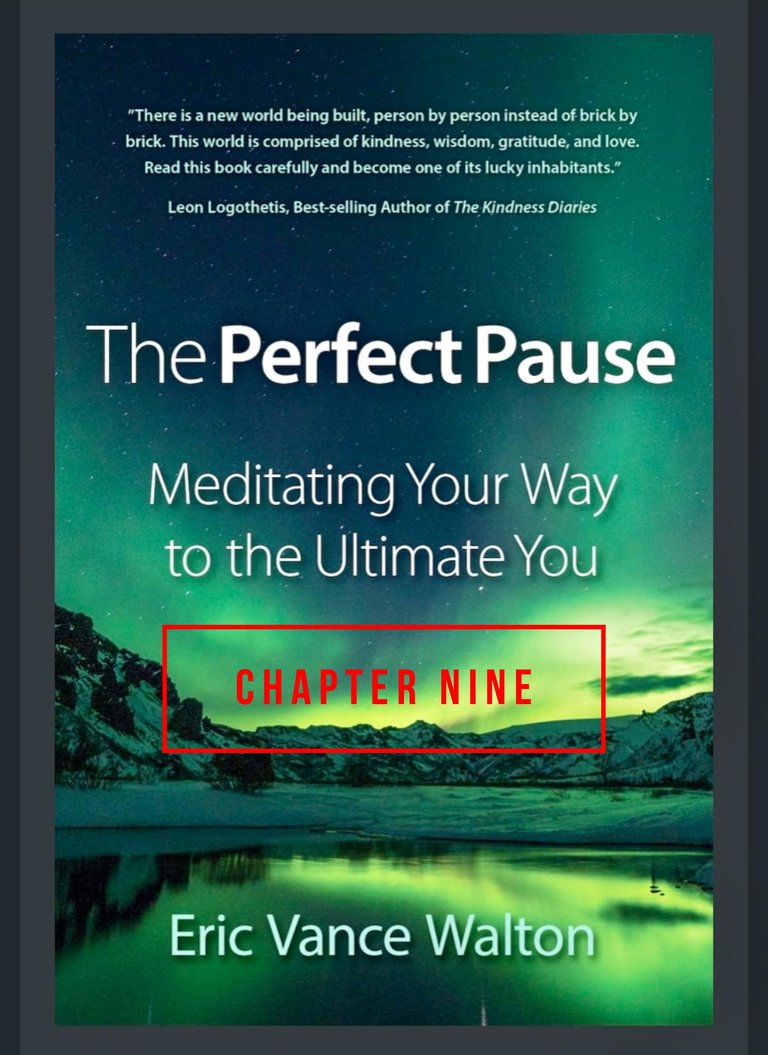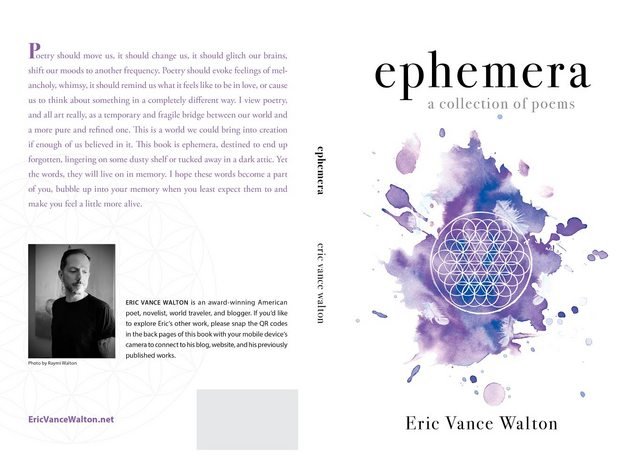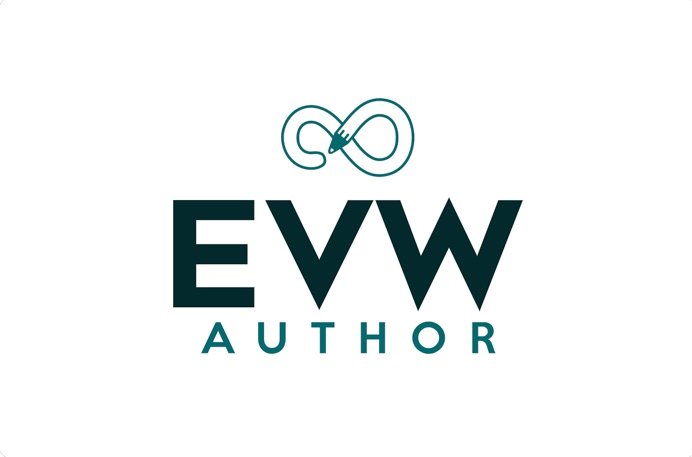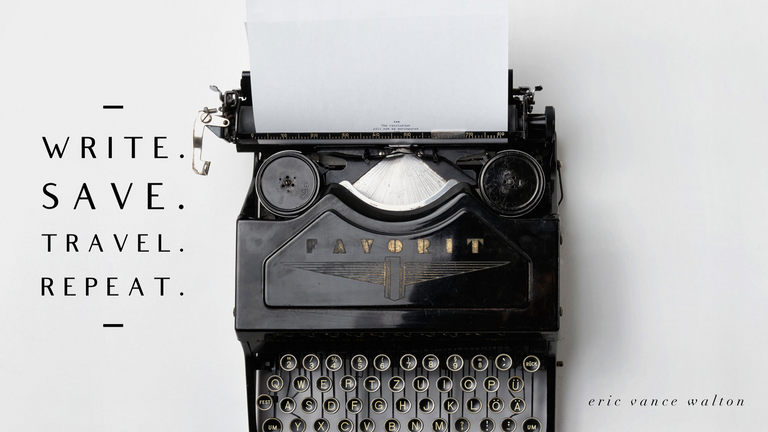
Chapter Intro
Chapter nine is like a potpourri of suggestions to help declutter your life, clear your mental headspace, and make your life more conducive to healthy relationships and spiritual growth.
We only have three chapters left. Thanks to everyone who has been following along. I hope you've found it to be helpful!
Read on...
Chapter Nine
"A man is rich in proportion to the number of things he can let alone.” ~ Henry David Thoreau
Thoreau was a wise one, indeed. To find true peace in our lives, we must continually strive to keep our consciousness more in the present moment. The problem is that the modern world in which we live provides countless distractions that prevent us from staying anchored in the present moment. As a result, most of us feel overworked and stressed. We feel desperate for some kind of peace and stability.
We have been conditioned to believe that abundance is wealth, busyness and multitasking equals productivity, and that we feel overworked even though the true cause is our own inefficiency. In our modern world, quantity has replaced quality in almost every conceivable way. Meditation will help you to simplify your life, become more aware of imbalances, re-shift your priorities, and greatly increase your quality of life.
TECHNOLOGY
Do you ever feel like there aren’t enough hours in the day? I know I do. We live in a time of frenetic technological advancement. Computers double their abilities every twelve to eighteen months. It seems that technology is evolving faster than our ability to adapt to it. We must find a way to better balance our lives because the technology in our world is evolving exponentially.
There was a time, not long ago, when cell phones only did two things: made and received calls. Now, they give us instant access to everything, including social media. Social media taps into one of our greatest human desires to socialize. By way of our mobile phones, we can connect with thousands of people simultaneously, whenever we choose. We can now feel the same joy and sense of interconnectedness we used to experience from face-to-face interaction at any time by logging into our social media accounts.
“Here though, there are no oppressors. No one's forcing you to do this. You willingly tie yourself to these leashes. And you willingly become utterly socially autistic. You no longer pick up on basic human communication clues. You're at a table with three humans, all of whom are looking at you and trying to talk to you, and you're staring at a screen! Searching for strangers...” ## ― Dave Eggers, The Circle
Mobile phones are your single greatest tool, if used with discipline. Sadly, cell phones have also become society’s number one addiction and largest impediment to keeping our consciousness in the present moment. Mobile phone addiction is an epidemic but its negative effects are only starting to be recognized. The warning signs are everywhere: zoned out children; distracted walking; people staring at their screens while completely ignoring friends and family with whom they could be having enriching conversations.
Using technology to your benefit instead of your detriment merely takes discipline and restraint. How many hours per day do you spend on your smartphone? If you’re anything like me, when you begin to pay attention, the number will surprise you.
The key to regaining life balance is screen-time management. When you’re socializing, make a conscious effort to be present and engaged with those around you. Put your phone away and vow to not to look at it. Suggest that those you’re with do the same. I remember a time when even glancing at your wristwatch while socializing was considered rude because it implied disinterest. Time is, by far, our most precious commodity. The people you’re sharing your time with deserve your full attention just as much as you deserve theirs.
When you’re staring at your phone, you could also be missing synchronistic moments that hold life-changing potential. For this reason, try to set strict screen-time limits for yourself throughout the day. Try limiting yourself to an hour in the morning and an hour in the afternoon. There are multiple free apps available for both Android and iPhone to assist with this if you find it too difficult a task to accomplish on your own. Search “screen-time management” in Google Play or iTunes.
Reclaiming your power and freedom from technology will be one of the single best decisions you can make to improve the quality of your life. Like every aspect of life, balance and discipline are the keys. Use technology, don’t let it use you.
FOCUS
I place the blame for the concept of multitasking squarely on the Industrial Revolution. Before this time, people tended to focus on one task at a time. Today, multitasking is held in such high regard that it’s one of the top keywords used on resumes and job descriptions throughout the world, right up there with “self-starter.” A certain amount of multitasking is necessary to function in our world, but when you try to accomplish too much at once, everything we are trying to accomplish suffers.
One horrible side effect of multitasking is the inability to concentrate. The good news is, with continued practice, meditation will help to redevelop and strengthen your ability to concentrate. This is one of the many areas in which mediation will assist you that doesn’t require any conscious effort. All that is required is you diligently continue your daily meditation practice.
YOUR “STUFF”
I believe that the condition of your living space both directly influences your mood and state of well-being and is an outward physical representation of the state of your mind. Take a look around at your living space. Is it clean and orderly or messy and cluttered? It’s so much easier to relax when your space is clean and everything is in its place. You will find as your meditation progresses you will naturally prefer to have a tidy living space.
“Keep only those things that speak to your heart. Then take the plunge and discard all the rest. By doing this, you can reset your life and embark on a new lifestyle.” — Marie Kondo
Marie Kondo wrote a very enlightening book on this topic called, “The Life-Changing Magic of Tidying Up: The Japanese Art of Decluttering and Organizing.” Her book made me completely rethink my relationship to my possessions and my living space. After I read her book, I immediately began to declutter my entire life. I gave away or sold possessions that I had accumulated over the years that I didn’t use or no longer brought me joy.
For decades, marketing firms have been paid millions (probably more like billions) of dollars to condition us all to focus on initial price instead of lifetime cost of ownership. This makes companies much more money. It worked. To quickly get de-conditioned to this trick you merely have to start thinking about the true cost of ownership for both the goods and services in your life.
For example, my wife and I started thinking about the annual cost of satellite television. Once we calculated how much of our income was going out annually for cable/satellite T.V., we cancelled our subscription immediately. Instead, we bought a digital antenna for $20 and a refurbished Apple TV for $70. For years we’ve survived happily with this set-up. We find we watch less television and have reduced our overall television bill from $130 per month to $20. Whenever you can reduce your budget like this it equates to an instant increase in salary.
I’ve also learned to buy things that will last and can be repaired instead of buying disposable items that can just be used for a short amount of time and thrown away. For example, I was spending $20 a month on modern, disposable razor blades. This really bothered me. I did some research and purchased a razor that uses old-fashioned safety blades. The razor was twenty dollars and is made in Germany (Merkur brand) and is of super high quality. I found two hundred safety blades online for twenty dollars. Five years later I’m still using that same box of blades and I’m actually getting a better shave. I’ve also saved over a thousand dollars in the process.
My greatest bargain was a 1959 English-made Raleigh 3-speed bicycle I found on Craigslist for the price of a department store bike. Each and every part of the vintage bike is made so it can be repaired, even the pedals. The Raleigh bike is now my main rider, the craftsmanship is so much better than modern bikes that I eventually sold all of my other ones because they couldn’t compare in terms of quality.
Learning to be satisfied with less reduces your overall stress and magnifies your overall happiness. This state of satisfaction begins with being grateful for what you have right now. Make it a practice, either before or after your meditation sessions, to think about all of the blessings in your life. Once you start focusing on gratitude for what you have, the hunger to acquire things you don’t have will lessen.
You will find there’s an amazing freedom from not feeling tethered to an overabundance of possessions. Through meditation, as you begin to get glimpses of true happiness, you’ll realize that material things can in no way compare to the real thing.
REBOOT YOUR CONSCIOUSNESS
When modern life leaves you feeling frazzled and exhausted, the best antidote is a simple walk in the woods. Humans have evolved over hundreds of thousands of years with regular contact with nature. Only recently have humans begun to spend most of their time indoors. Our genes simply haven’t had time to catch up to this major shift in behavior.
A walk in the woods is like rebooting our human consciousness. Nature allows us to clear our minds and find our natural balance again. Research even shows listening to birdsong can improve mood and cognitive function. When I’m feeling stressed, or if I’m experiencing writer’s block, a walk in the woods never fails to help.
Putting It Into Practice
Use the Notes feature of this chapter to document the changes you notice as a result of these practices.
Technology. Evaluate how much time you spend on your mobile phone daily. Then, ask yourself, “Could I be making better use of that time?” If the answer is yes, set an alarm on your phone to chime twice daily. Use this block of 15-30 minutes twice daily as your allotted social media screen time.
Also, when you’re socializing with others, keep your phone in your pocket or purse. Encourage your friends and family to do the same.
Focus. As you continue your meditation practice take notice of any changes in your ability to focus. As you’re living your day-to-day life, start paying attention to your behavior throughout the day. You will find that you’re more likely to feel stressed when you’re multitasking. Sometimes multitasking is unavoidable but most times it is not, you’ve just been conditioned to believe that you’re being more efficient by doing it. Practice concentrating on one thing at a time. If you’re walking…just walk, if you’re cooking…just cook, if you’re sweeping the floor…just sweep. At first your brain will scream, “You could be doing more!” but keep up your focus on the singular task until it is done. Try this once a day and then record in the Notes section of this chapter how it makes you feel.
Your Stuff. Take one hour and evaluate your living space. Begin to shed unneeded or unwanted possessions. Is there anything you own that you’d like to donate to charity? Do you have anything you’d like to sell to make a little extra money for a dream trip or activity you’ve always wanted to do? Is there anything that you no longer use that might be of use to someone else?
Your clothes closet is a great place to start. I have a practice of donating any item of clothing that I haven’t worn for six months or more to charity. One helpful way to evaluate which clothes are getting wear-time is to turn all of the hangers so your clothes are facing backwards. When an item is worn and rehung, turn that hanger so it’s facing forwards. Any item still facing backwards after six months should be given away.
After you evaluate your living space and begin shedding possessions take note of how this makes you feel. Minimalism can become quite a positive addiction. Most often scaling down your possessions will leave you with a sense of wholeness instead of a feeling of loss.
Nature. The next time you feel frazzled or overly stressed, make your way to a patch of woods or, if the weather’s bad, find an indoor conservatory and walk (while keeping your mobile phone in your pocket.) While walking practice your deep breathing (inhale for a county of five, hold for five, exhale for a count of five.) The oxygen-rich air and peaceful environment will get to work healing your body and spirit almost immediately. A mindful walk in nature is literally like hitting the reset button for your consciousness and creativity. Using the Notes section of this chapter jot down how you feel after you do this.
All for now.
With Gratitude,
Eric Vance Walton

Poetry should move us, it should change us, it should glitch our brains, shift our moods to another frequency. Poetry should evoke feelings of melancholy, whimsy, it should remind us what it feels like to be in love, or cause us to think about something in a completely different way. I view poetry, and all art really, as a temporary and fragile bridge between our world and a more pure and refined one. This is a world we could bring into creation if enough of us believed in it. This book is ephemera, destined to end up forgotten, lingering on some dusty shelf or tucked away in a dark attic. Yet the words, they will live on in memory. I hope these words become a part of you, bubble up into your memory when you least expect them to and make you feel a little more alive.
Pick up a copy of Ephemera today on Amazon.

Most of us have experienced a moment of perfect peace at least once in our lives. In these moments we lose ourselves and feel connected to everything. I call these mindful moments. Words can’t describe how complete they make us feel.
These moments are usually fragile, evaporating in seconds. What if there was a way to train your mind to experience more of them? It’s deceptively easy and requires nothing more than a subtle shift in mindset. My new book, Mindful Moments, will teach you to be much more content despite the chaos and imperfect circumstances continuing to unfold around you. Upgrade your life experience today for only $15.99 on Amazon.com.
Let’s Keep In Touch


I had to read Thoreau when I was in high school and I don't think I really appreciated it back then. I'd like to read it again now that I am older and wiser. If only I weren't such a slow reader. It's some pretty heavy stuff and I feel like it would take me much too long to go back and read it now! I get that about cell phones. If I had a kid, I don't know as though they would have a smartphone. I would likely get them a flip phone if they needed it to be picked up from practice or whatever. I do see the benefit. My phone is so many things to me (including a phone). I wouldn't complain if saw a kid on the subway reading the Wall Street Journal or a book so I'd like to give them the benefit of the doubt and think they are on Kindle or a news aggregator versus TikTok.:) It's probably usually TikTok though...
I read Walden in college and it had a pretty big impact on me. I was ready for it at that age. It wouldn't have resonated as much if I would have read it in high school. The screen time debate is a tough one. I definitely wouldn't allow my children unlimited use of devices. There would be a 1-3 hour window per day probably and they'd have to do a balance of other things, like play outside.
Yeah, I totally agree with that. I would likely have restrictions if I had a kid too. My sister in law didn't allow her kids to take their phones into their room at night for the longest time. As soon as bedtime hit they would be on the kitchen counter plugged in. Like up until high school. They are pretty responsible too.
Hello dear friend @ericvancewalton It is very common that we think that abundance is wealth, and that to be running like crazy is to be a more productive person, I think that we have assimilated from our parents has to be like that, however, as you say, it is our choice , especially if we do an analysis of the situation, we will realize that there are many things that we have or what we do, it is not really important.
Life is a choice and it is very important to be able to organize those things in our lives through meditation.
The more I read, I realize that I need to start doing meditation, I have many things ingrained inside.
With my wife, since the legacy of the pandemic, and the high costs of services, we have decided to terminate several services, and we realized that it was something that we did not need.
I appreciate you sharing these experiences. I take this opportunity to wish you a great day and an excellent week
Hello my friend! Thank you for your comment. The pandemic years have certainly been interesting and have forced everyone to find ways to make the most of things and stretch a dollar. It's a time period that will live on in our memories and shape our behavior for decades to come. Have a wonderful week!
You're absolutely right my friend, Eric... nowadays it's as if the cell phone has taken over and influenced a person. I also feel every time I wake up the first thing I look for is a cellphone. .Today's cell phones have made people who are far away close but can also make people who are near become far away. The students are not focused on learning because all they think about is games on their android.
Mobile phone addiction is very real! The amount of people we see steering their cars with their knees and texting with both hands is astounding.
Technology especially with cell phones has more negative effects than positive for our lives, I think. I don't approve giving a smart phone or tablet to kids to stay quite. It is not an education style.
I experinced a strange anectode last day;
We friends were sitting at home and of course cell phones on hand. Suddenly, electric there was a blackout. Then we started to talk each other...